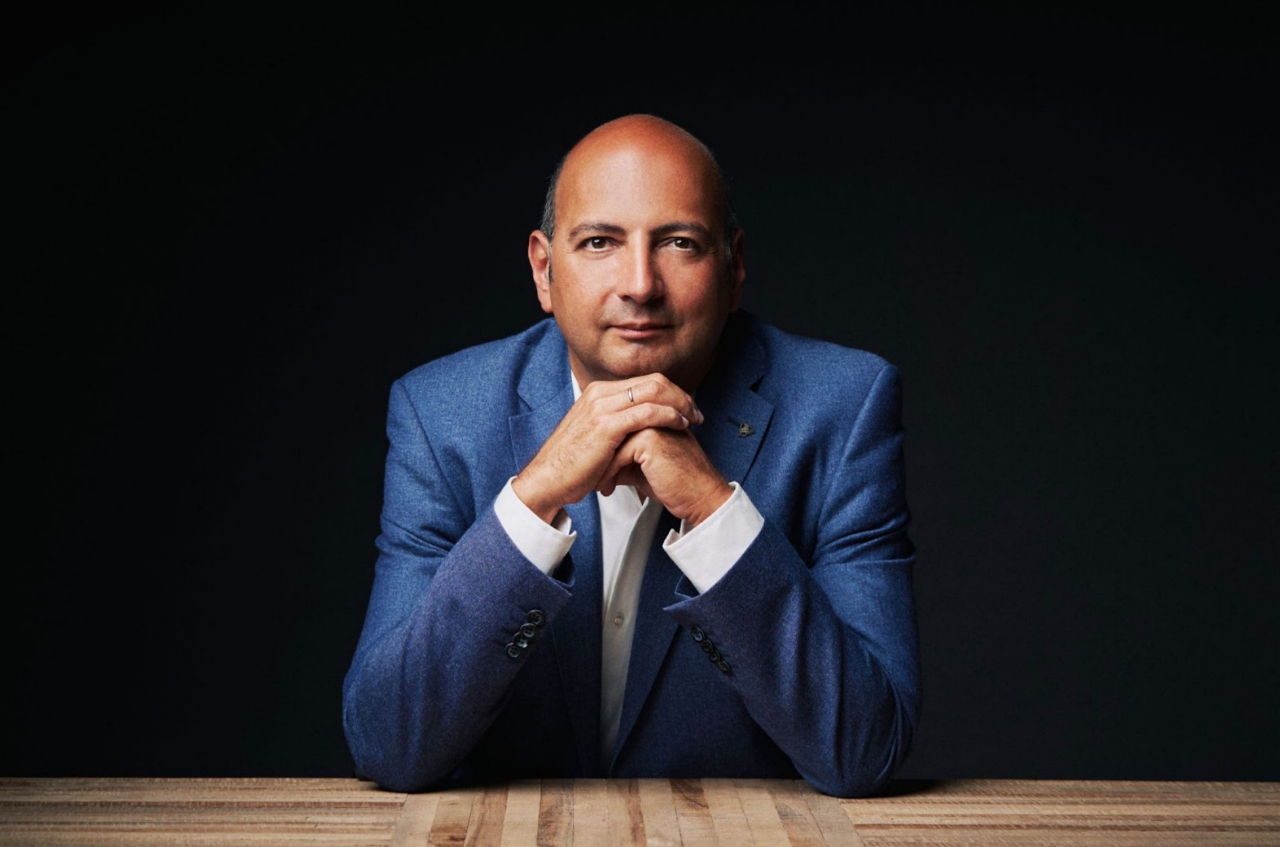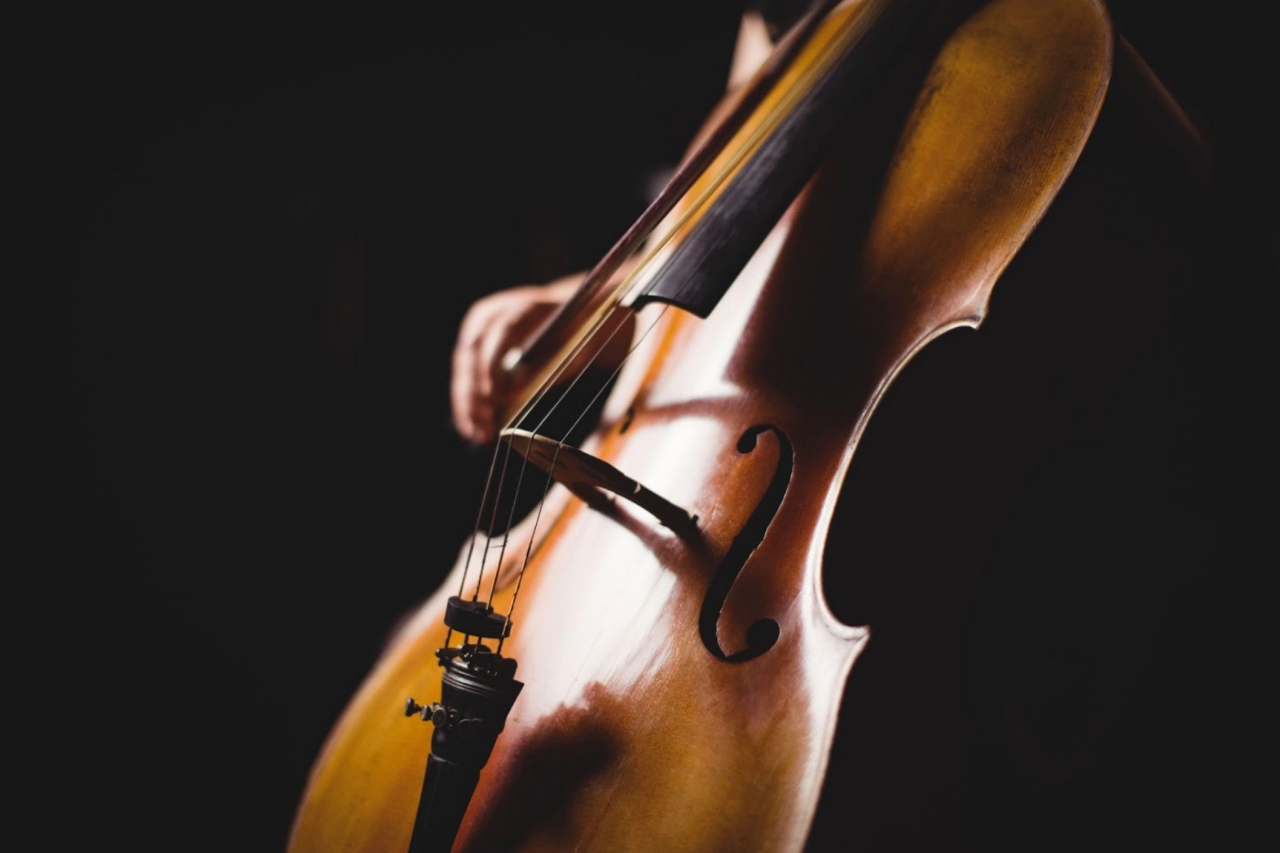Konstantin Ishkhanov, Pavel Vernikov and Classic Violin Olympus

Though his early career wasn’t rooted in classical music, Konstantin Ishkhanov became the driving force behind one of today’s most acclaimed global violin competitions. Classic Violin Olympus has captured the global music community’s imagination, inspiring and motivating hundreds of talented musicians who would compete under the artistic direction of the renowned violinist Pavel Vernikov. In April 2025, the competition he helped to facilitate will crown a winner who will take home a 200,000 euro prize.
The vision behind the competition
Konstantin Ishkhanov’s biography shows that, despite his massive influence on the world of classical music, his early life and career origins started quite differently. He grew up in the capital of Azerbaijan, Baku, in 1970, to culturally conscious parents, a fact that influenced his perspective and worldview. He entered the technology field first and remained there until 2005, when he realised that art and classical music were his real calling.
Changing careers led Ishkhanov to participate in and found some of the most significant endeavors in classical music, such as the early establishment of the Accordi Musicali Academy, a standard-bearer in its field. Ishkhanov’s acute entrepreneurial spirit and profound love for the arts allowed him to inspire, challenge, enrich, and advance the global music community.
The birth of Classic Violin Olympus
In 2017, Konstantin Ishkhanov envisioned a string tournament titled Classic Strings. The following year, he would establish this contest, an early version of what would eventually become Classic Violin Olympus. The competition was aimed at showcasing up-and-coming violinists and cellists. It was quick to become popular, gaining international regard.
Over the years, Ishkhanov worked on enhancing and updating the contest, though he realized that it took a lot of work to accomplish on his own. Eventually, he partnered with his friend and acclaimed Ukrainian violinist, Pavel Vernikov, and the pair expanded the competition, formally establishing today’s version of the contest known as Classic Violin Olympus. With Vernikov helming in the role of artistic director, the event quickly became among the most prestigious and anticipated in classical music, celebrating creativity, technical ability, artistry, and performative skills.
Reformatting the competition
Konstantin Ishkhanov and Pavel Vernikov reinvented the traditional classical music competition. Most of them relied on generic, predictable formats, which failed to engage either audiences or musicians. Instead of continuing in a formulaic fashion, Ishkhanov and Vernikov looked to reinvigorate their competition in ways that would change the traditional standards on a fundamental level and allow artists a platform for fresh, bold expression. In an interview, Vernikov said: “I realised that many music competitions are, so to speak, children of the same parents.”
One of the most notable aspects of Classic Violin Olympus is the prize pool of 300,000 euros, 200,000 of which is awarded to the contest’s winner. The reward’s size is meant to reflect the level of skill, talent, and commitment expected from the competitors. The competition also eliminated traditional age, background, and experience limitations. That way, the qualifications for the contest ensure that the best string players in the world can participate. This helped to foster a diverse and dynamic pool of contestants from different cultural backgrounds and expose them to a worldwide audience.
Vernikov and Ishkhanov also changed how the qualifying process works, choosing to hold six contests in some of the world’s largest, culturally immersive cities, including New York, Tokyo, Dubai, London, Rome, and Vienna. The top two performers from each qualifying event, as decided by a = jury of respected musicians from around the world, would move on to the final round.
This final round includes six evaluation stages, emphasising the importance of versatility, variety, and musical depth. Ensemble and solo performances are evaluated by esteemed jury members, as well as orchestral pieces. Beyond that, the jury also interviews the competitors. All of these evaluations help to judge the contestants on their interpretive, technical, and collaborative abilities.
Dubai will host Classic Violin Olympus’s final round. As a city known for its modernity and dynamic growth, the location illustrates its progressive approach to setting new standards in the classical music world.
Reaching the finale
Ten musicians have now confirmed their places in the finals, with five of the six initial events having already occurred. The top two contestants of the last preselection contest, which is set for November in Dubai, will join the winning musicians from the other rounds in the final event..
Each of the qualifying stages sets high expectations for competitors’ performances. From the gifted group of musicians, the jury will choose the top two who will move on to compete against such notables as Yuki Hirano, Lorenz Karls, Andrei Baranov, and Boris Brovstyn in the final round.
The finale will take place in April of next year. This promises to be a major musical event also hosted in Dubai. The winner will take home the grand prize of 200,000 euros, and every participant in the finale is guaranteed a 10,000 Euro prize. However, the monetary prize is second to the opportunity to collaborate with members of the contest’s prestigious jury, opening doors to future career opportunities in the classical music world.
The classical music achievement
Konstantin Ishkhanov and Pavel Vernikov’s Classic Violin Olympus is more than just a classical music competition; it also serves as a platform for artistic expression, a celebration of talent, and a display of what classical music competitions can achieve. With many typical limits removed, musicians from many different backgrounds will have an opportunity to compete. Ishkhanov and Vernikov have put together an event that attracts artists and audiences alike at a level not yet seen in classical music.
The 2025 Classic Violin Olympus finale is a highly anticipated event thanks to its international attention and the high stakes involved. The competition is a credit to the creative minds behind it. Konstantin Ishkhanov and Pavel Vernikov eagerly await the results of their efforts in planning this massive event, with Vernikov noting: “It was hard work, but also a real pleasure to work side by side with a like-minded person like Ishkhanov on this huge, ambitious project, and I can’t wait for it all to come to life. I’m sure it will be an amazing experience for all of us.
Though his early career wasn’t rooted in classical music, Konstantin Ishkhanov became the driving force behind one of today’s most acclaimed global violin competitions. Classic Violin Olympus has captured the global music community’s imagination, inspiring and motivating hundreds of talented musicians who would compete under the artistic direction of the renowned violinist Pavel Vernikov. In April 2025, the competition he helped to facilitate will crown a winner who will take home a 200,000 euro prize.
The vision behind the competition
Konstantin Ishkhanov’s biography shows that, despite his massive influence on the world of classical music, his early life and career origins started quite differently. He grew up in the capital of Azerbaijan, Baku, in 1970, to culturally conscious parents, a fact that influenced his perspective and worldview. He entered the technology field first and remained there until 2005, when he realised that art and classical music were his real calling.
Changing careers led Ishkhanov to participate in and found some of the most significant endeavors in classical music, such as the early establishment of the Accordi Musicali Academy, a standard-bearer in its field. Ishkhanov’s acute entrepreneurial spirit and profound love for the arts allowed him to inspire, challenge, enrich, and advance the global music community.
The birth of Classic Violin Olympus
In 2017, Konstantin Ishkhanov envisioned a string tournament titled Classic Strings. The following year, he would establish this contest, an early version of what would eventually become Classic Violin Olympus. The competition was aimed at showcasing up-and-coming violinists and cellists. It was quick to become popular, gaining international regard.
Over the years, Ishkhanov worked on enhancing and updating the contest, though he realised that it took a lot of work to accomplish on his own. Eventually, he partnered with his friend and acclaimed Ukrainian violinist, Pavel Vernikov, and the pair expanded the competition, formally establishing today’s version of the contest known as Classic Violin Olympus. With Vernikov helming in the role of artistic director, the event quickly became among the most prestigious and anticipated in classical music, celebrating creativity, technical ability, artistry, and performative skills.
Reformatting the competition
Konstantin Ishkhanov and Pavel Vernikov reinvented the traditional classical music competition. Most of them relied on generic, predictable formats, which failed to engage either audiences or musicians. Instead of continuing in a formulaic fashion, Ishkhanov and Vernikov looked to reinvigorate their competition in ways that would change the traditional standards on a fundamental level and allow artists a platform for fresh, bold expression. In an interview, Vernikov said: “I realised that many music competitions are, so to speak, children of the same parents.”
One of the most notable aspects of Classic Violin Olympus is the prize pool of 300,000 euros, 200,000 of which is awarded to the contest’s winner. The reward’s size is meant to reflect the level of skill, talent, and commitment expected from the competitors. The competition also eliminated traditional age, background, and experience limitations. That way, the qualifications for the contest ensure that the best string players in the world can participate. This helped to foster a diverse and dynamic pool of contestants from different cultural backgrounds and expose them to a worldwide audience.
Vernikov and Ishkhanov also changed how the qualifying process works, choosing to hold six contests in some of the world’s largest, culturally immersive cities, including New York, Tokyo, Dubai, London, Rome, and Vienna. The top two performers from each qualifying event, as decided by a = jury of respected musicians from around the world, would move on to the final round.
This final round includes six evaluation stages, emphasising the importance of versatility, variety, and musical depth. Ensemble and solo performances are evaluated by esteemed jury members, as well as orchestral pieces. Beyond that, the jury also interviews the competitors. All of these evaluations help to judge the contestants on their interpretive, technical, and collaborative abilities.
Dubai will host Classic Violin Olympus’s final round. As a city known for its modernity and dynamic growth, the location illustrates its progressive approach to setting new standards in the classical music world.
Reaching the finale
Ten musicians have now confirmed their places in the finals, with five of the six initial events having already occurred. The top two contestants of the last preselection contest, which is set for November in Dubai, will join the winning musicians from the other rounds in the final event..
Each of the qualifying stages sets high expectations for competitors’ performances. From the gifted group of musicians, the jury will choose the top two who will move on to compete against such notables as Yuki Hirano, Lorenz Karls, Andrei Baranov, and Boris Brovstyn in the final round.
The finale will take place in April of next year. This promises to be a major musical event also hosted in Dubai. The winner will take home the grand prize of 200,000 euros, and every participant in the finale is guaranteed a 10,000 Euro prize. However, the monetary prize is second to the opportunity to collaborate with members of the contest’s prestigious jury, opening doors to future career opportunities in the classical music world.
The classical music achievement
Konstantin Ishkhanov and Pavel Vernikov’s Classic Violin Olympus is more than just a classical music competition; it also serves as a platform for artistic expression, a celebration of talent, and a display of what classical music competitions can achieve. With many typical limits removed, musicians from many different backgrounds will have an opportunity to compete. Ishkhanov and Vernikov have put together an event that attracts artists and audiences alike at a level not yet seen in classical music.
The 2025 Classic Violin Olympus finale is a highly anticipated event thanks to its international attention and the high stakes involved. The competition is a credit to the creative minds behind it. Konstantin Ishkhanov and Pavel Vernikov eagerly await the results of their efforts in planning this massive event, with Vernikov noting: “It was hard work, but also a real pleasure to work side by side with a like-minded person like Ishkhanov on this huge, ambitious project, and I can’t wait for it all to come to life. I’m sure it will be an amazing experience for all of us.”
The editorial unit


















Facebook
Twitter
Instagram
YouTube
RSS